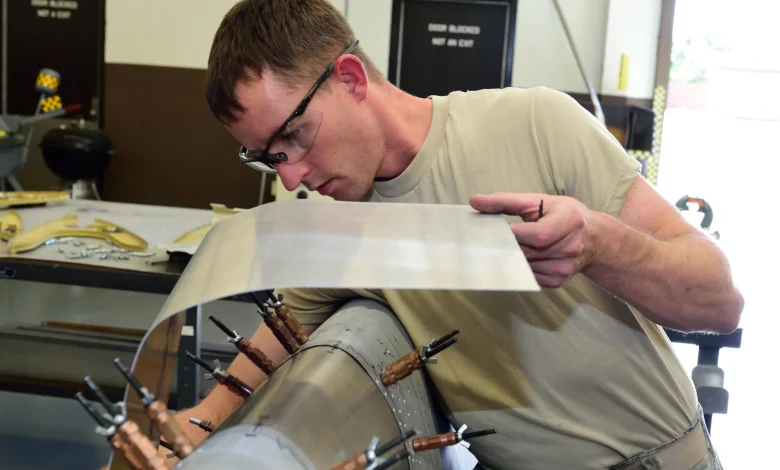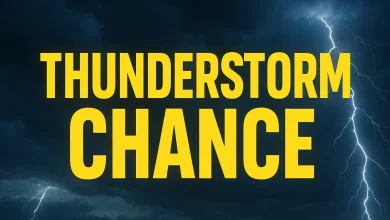Unique Group of Airmen Face a Third Missed Paycheck Without Shutdown Resolution

Congress is making moves to end the longest government shutdown in U.S. history, but lawmakers have only a few days left to clear the procedural hurdles necessary to ensure troops get paid Nov. 14.
The issue is particularly pressing for tens of thousands of uniformed personnel in the Air National Guard and Air Force Reserve who have missed two paychecks already.
In what has been the first multiweek shutdown since 1981 that troop pay has gone unprotected, the White House and the Pentagon have scrambled to find last-minute solutions to fund Oct. 15 and Oct. 31 paydays for most service members.
But there has been no money to pay a unique group of Air Force and Army maintainers, logisticians, and even pilots that are deemed critical to readiness in the Guard and Reserve. These “dual-status technicians” are federal civilian employees that are required to serve in the Guard and Reserve, wear the uniform, and meet all military standards.
Currently, there are 10,744 dual-status techs in the Air Guard and 6,697 in the Air Force Reserve, according to numbers in the fiscal 2025 National Defense Authorization Act. These techs are indistinguishable from the Active Guard Reserve troops they work alongside, but they will not be paid until the shutdown ends.
Morale for them and their families has plummeted, said retired Maj. Gen. Francis M. McGinn, president of the National Guard Association of the United States.
“Right now, they are financially and emotionally drained; there’s just a visible decline in morale, trust, and motivation,” McGinn told Air & Space Forces Magazine. “They’re disgusted with how they’re being treated; they’re tired, they’re broke and it feels like nobody cares about them.”
The Guard and Reserve furloughed most dual-status technicians when the shutdown began, but some units have since recalled many who were deemed essential to readiness, said a senior Air Force Reserve officer, granted anonymity for this story.
In this officer’s particular unit, about 70 percent of the dual-status technicians have been recalled to support readiness training and test and development activities.
“We’ve got these critical employees that we’re asking to come to work, and they’re still paying for gas, and they’re still paying child care and basic needs … but there’s no money on the backside to backfill that, so that’s a stressor,” the Reserve officer said, adding that it has been particularly hard for junior enlisted dual-status technicians already “living paycheck-to-paycheck.”
The story is the same for many dual-status technicians in the Army National Guard. One senior Army Guard officer said about half of the 110 technicians in his unit are wage-grade employees equivalent to grades E-4 to E-6, normally taking home an average of $1,500 every two weeks to “pay car payments, daycare, food, and getting to work—that doesn’t go too far.”
The Army officer, also granted anonymity, said his unit furloughed most of it dual-status technicians to allow them to pick up side jobs during the shutdown.
“A lot of mine are trained mechanics, so they do a lot of side work and carpentry and different things to get by,” the Army officer said.
The Air Force Reserve officer said many of the dual-status techs in his unit have done the same, driving for Uber and Lyft.
In some cases, this has affected the morale of the techs that are required to come into work without getting paid, the Air Force Reserve officer said. People inevitably compare themselves to the furloughed technicians that can find temporary jobs, “and they’re like, ‘why am I coming to work and not getting paid while the person next to me isn’t required to come to work?’” the officer said.
There is also a lack of clarity among Active-duty personnel who don’t understand why many uniformed dual-status technicians are furloughed, the officer added.
The shutdown has also begun to degrade readiness, impacting maintenance, training exercises, and military education across the force, retired Army Maj. Gen. John Hashem, executive director of the Reserve Organization of America, said at a Nov. 10 roundtable hosted by the Air & Space Forces Association.
“It really hurts our readiness; in the Reserve component, everything just gets pushed to the right,” Hashem said. “I just can’t throw you back into a school if I had to take you out of it. I just can’t get you ready for the next exercise, because now probably the exercise has been changed entirely, so the whole readiness balance is put in turmoil.”
Late Nov. 9, the Senate made the first moves in a process that could end the shutdown by week’s end. The revised continuing resolution would fund the government at fiscal 2025 levels and guarantee backpay for furloughed federal workers through Jan. 30. But before that happens, the full Senate and House must vote and President Donald Trump must sign the legislation—a process that could take several days.
“If Congress goes through its normal process, it won’t open the government until next week, but both the Senate and the House have procedures where they can shorten that immensely and actually get it through in time for the paycheck to come out this Friday,” retired Air Force Lt. Gen. Burton Field, president and CEO of AFA, said during the roundtable.
But even if the shutdown ends soon, many dual-status technicians may be left with a sour taste in their mouths.
“They are still here out of loyalty, but it’s getting harder every day,” the Army Guard officer said. “What speaks to the heart of any Soldier or Airman is you can love an organization as long as you want, but once you’re stomped on all the time, you can only stay for so long.”
McGinn said he believes this shutdown will spark an “exodus of talent” and hurt the Guard and Reserve’s ability to retain many of these experienced dual-status technicians.
“Some of these jobs are already difficult to fill in the first place,” McGinn said during the roundtable. “Missing a paycheck is no small matter. We need to fix this. We need Congress to pass protections for our uniform and technician personnel.”
Field said employees working for the private sector would not put up with working without pay.
“In the civilian world, if payroll goes down, people just walk,” Field said. “We’re lucky that across the government, we have people that are willing to make that sacrifice, but they can only make that sacrifice for so long before they’re going to walk.”
Field also endorsed the idea of Congress passing legislation to protect military and civilian military workers’ pay in any future shutdowns.
“During the next period after they open the government this time, pass a bill that doesn’t allow this to happen again to military service members, civilians and their families,” he said.





